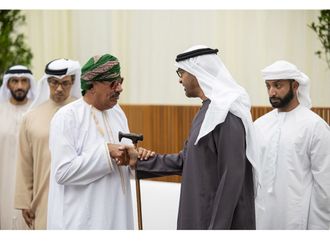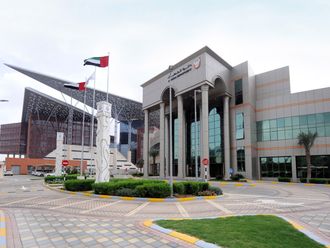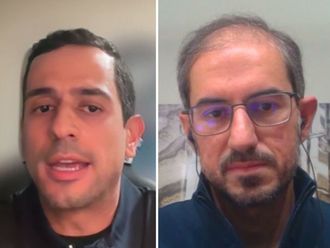Qatar yesterday signed a long-term deal with Italian energy group Edison Gas for the supply of 3.5 million tonnes a year of liquefied natural gas (LNG), officials from both sides said.
They said the long-term agreement, Qatar's second with a European firm, was for 25 years with delivery starting in 2005. "We see Europe as very strategic in diversifying our LNG markets and are bullish on the demand growth, both near and long term," Energy Minister Abdullah bin Hamad Al Attiyah said at the signing ceremony.
Qatar in May signed contracts to deliver 12.6 million tonnes of LNG to Spain's Gas Natural Group over the next 12 years. Stiff competition from Russian gas and cheaper LNG imports from the Mediterranean had kept Qatar, with the world's third biggest gas reserves, on the sidelines in Europe.
Qatar aims to export 30 million tonnes a year of gas by 2007 and derive more than half of its revenue from LNG sales, instead of crude. Currently, its LNG projects — Qatargas and Ras Laffan LNG Co (RasGas) — export around 12 million tonnes.
Under the deal, RasGas will supply Edison and secure four ships to transport the LNG to Italy. Edison will construct a new LNG terminal in the North Adriatic. RasGas was designed to tap Qatar's North Field, which has the largest single concentration of natural gas in the world. Qatar, the smallest producer in Opec, aims to export 30 million tonnes a year of LNG by 2007 and derive more than half of its revenue from LNG sales. So far, it has confirmed deals to export 23.2 million tonnes annually to Japan, South Korea, India, Spain and now Italy.
Qatar is holding talks for the sale of another seven million tonnes a year with firms in Taiwan, India and the U.S. In 2000, Qatar supplied 10.8 million tonnes of LNG, worth around $1.8 billion, on long-term and spot contracts to various firms in Japan, South Korea and the United States.
This year, the export figure is expected to exceed 13 million tonnes and exports are set to rise further after mid-2003 when Rasgas starts supplying 7.5 million tonnes a year of LNG to India's Petronet. Qatargas, the other LNG venture, has also embarked on modification and debottlenecking of its facilities to expand production by 40 per cent to 9.2 million tonnes by 2003.
Meanwhile, Attiyah indicated that Opec may not need to boost supplies in early July even if there were a prolonged suspension of Iraq's United Nations-supervised oil exports.
"We act on the signals given by the market and at present the signal is that there is a lot of oil in the market," Attiyah said. "This gives us confidence that even if Iraq extends the cuts after July 3, there will be no shortage of crude in the market," the minister added.
He said prices have dropped by between $2 and $3 a barrel in the last two to three weeks "despite the cut in the Iraqi exports". Mounting petroleum stockpiles and a sluggish economy in the United States have piled pressure on world oil prices.
Attiyah's remarks echo earlier comments from Opec Secretary-General Ali Rodriguez, who said the oil group looks unlikely to raise output next month, despite the loss of Iraqi supplies, because oil prices have fallen. "If things remain as they are, and especially if Iraq comes back on the market, there will be no increase in production," Rodriguez said.
Iraq stopped deliveries of two million barrels daily, five per cent of world exports, on June 4 in protest at Anglo-U.S. proposals that aim to crack down on oil smuggling that has eroded sanctions.
Qatar signs long-term LNG deal with Edison of Italy
Qatar yesterday signed a long-term deal with Italian energy group Edison Gas for the supply of 3.5 million tonnes a year of liquefied natural gas (LNG), officials from both sides said.












